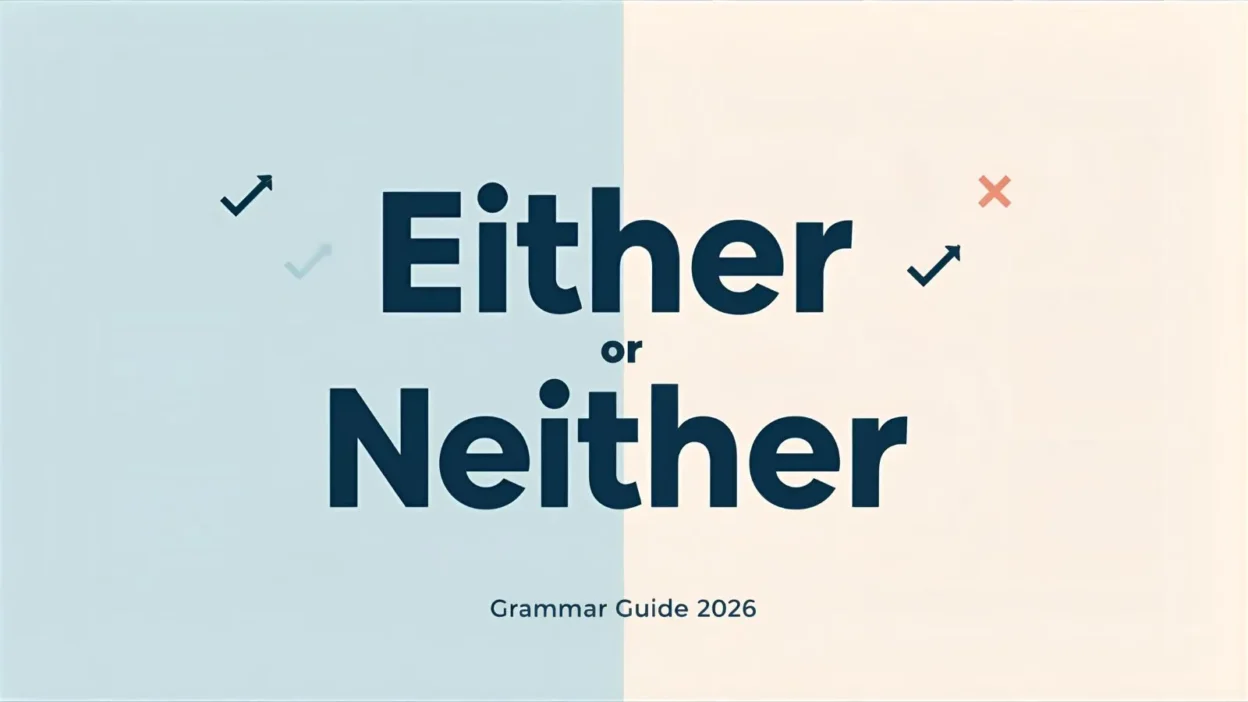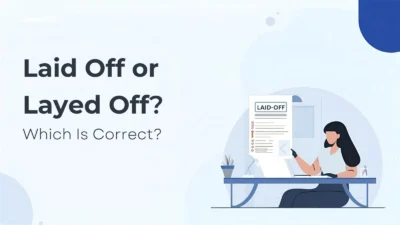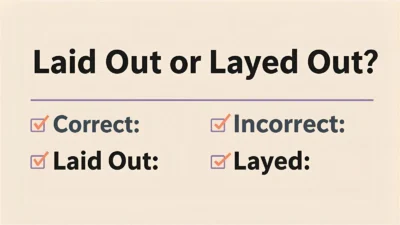Have you ever stopped while speaking or writing, wondering if you should use either or neither? You’re definitely not the only one.
Many students, English learners, and professionals struggle with this tiny grammar choice that often changes the meaning of a sentence completely.
Both words look similar, but their meanings are opposite — and that’s where the confusion begins.
In this simple guide, you’ll finally understand when to use either and neither, with clear examples and easy rules you’ll never forget.
Either or Neither – Quick Answer
Quick Answer:
✅ Either = One or the other (of two choices)
❌ Neither = Not one nor the other (of two choices)
In short:
- Either means one is okay.
- Neither means none are okay.
Examples:
- You can take either road. (One of two is fine.)
- Neither road is safe at night. (Both are not safe.)
Table: Either vs Neither – Quick Comparison
| Word | Meaning | Example | Type of Meaning |
|---|---|---|---|
| Either | One or the other of two options | You can take either route. | Positive / Choice |
| Neither | Not one or the other of two options | Neither answer is correct. | Negative / Exclusion |
Memory Tip:
Think of “either” as E = Excellent (a good choice)
and “neither” as N = No choice.
The Origin of “Either” and “Neither”
Both either and neither come from Old English, and their roots explain why they look and sound similar.
- Either originates from ǣgther (Old English), meaning “each of two.”
- Neither comes from nāgther, meaning “not either.”
Originally, both words described pairs or duality — referring to two options or two people. Over centuries, they evolved into words used to express choice (either) and exclusion (neither).
Historical Note:
In Middle English, “either” sometimes meant each instead of one or the other. Example from old literature:
Either man went his way.”
Meaning: Each man went his own way.
This older sense faded, leaving us with the modern meanings we use today.
British English vs American English Spelling
There’s no spelling difference between either and neither in British and American English — both are spelled the same.
However, the pronunciation is where they differ.
| English Type | “Either” Pronunciation | “Neither” Pronunciation | Common Usage Example |
|---|---|---|---|
| British English | /ˈaɪðər/ (“eye-thur”) | /ˈnaɪðər/ (“nigh-thur”) | Neither option appeals to me. |
| American English | /ˈiːðər/ (“ee-thur”) | /ˈniːðər/ (“nee-thur”) | Either one will work for us. |
Both pronunciations are correct in both regions, but each area tends to favor one style consistently.
Example Sentences:
- 🇬🇧 UK: Neither of us agreed to the plan. (“nigh-thur”)
- 🇺🇸 US: Either way, it’s a good idea. (“ee-thur”)
👉 Tip:
If your audience is mainly British or Commonwealth, go for the “eye-thur / nigh-thur” pronunciation.
If it’s American, stick with “ee-thur / nee-thur.”
Which Spelling Should You Use?
Luckily, there’s no spelling difference to worry about!
But your pronunciation and tone may depend on your target audience.
| Audience | Recommended Form | Example Usage |
|---|---|---|
| US Readers | “Either” (ee-thur), “Neither” (nee-thur) | Either option works fine. |
| UK / Commonwealth | “Either” (eye-thur), “Neither” (nigh-thur) | Neither result was acceptable. |
| Global / Online Writing | Either pronunciation | You can use either form — both are correct. |
For written English (emails, blogs, academic writing), both are universally accepted. Just be consistent throughout your piece.
Common Mistakes with Either or Neither
English learners often mix these two words when forming sentences. Let’s fix that.
| Mistake | Why It’s Wrong | Correct Form |
|---|---|---|
| Either of them are right. | “Either” refers to one → singular verb needed. | Either of them is right. |
| Neither of the answers have been checked. | “Neither” is singular. | Neither of the answers has been checked. |
| I don’t like either apples or oranges. | Double negative with “don’t.” | I like neither apples nor oranges. |
| You can take neither route. (when one is okay) | Wrong meaning. | You can take either route. |
| Neither… or… | Wrong conjunction. | Neither… nor… |
Quick Grammar Rules:
- Either…or → shows choice.
Example: Either you call me, or I’ll call you. - Neither…nor → shows rejection of both options.
Example: Neither John nor Sarah came.
Either or Neither in Everyday Examples
Let’s see how either and neither appear in real-world English.
1. Emails & Professional Writing
- Either day next week works for me.
- Neither option fits our budget.
- You can choose either package based on your needs.
2. Social Media & Conversations
- Can’t pick either dress! Both are cute!
- Neither movie was worth the hype.
- Either way, I’m happy with the outcome.
3. News & Journalism
- Either candidate could lead the party to victory.
- Neither side agreed to the proposed deal.
4. Formal Writing / Research
- Either method may produce similar results.
- Neither study supports the claim fully.
5. Academic or Exam Usage
- Either you understand the rule, or you memorize it.
- Neither of the theories applies here.
✅ Tip:
Use either when you want to sound flexible or positive.
Use neither when rejecting both options firmly.
Either or Neither – Google Trends & Usage Data
According to Google Trends, the keyword “either or neither” maintains steady global search interest, especially among students and non-native speakers.
Top Countries Searching “Either or Neither”:
| Country | Interest Level (0–100) | Common Reason for Search |
|---|---|---|
| India | 100 | Grammar and exam prep |
| Philippines | 92 | ESL learning |
| United Kingdom | 84 | Pronunciation differences |
| United States | 79 | Writing clarity |
| Australia | 75 | Academic use |
Observations:
- Searches peak during exam seasons and grammar test months (IELTS, TOEFL, SAT).
- Most people search for “either vs neither examples” and “either or neither pronunciation.”
- On YouTube and social media, pronunciation debates get millions of views — showing strong curiosity about correct usage.
Comparison Table: Either vs Neither (Summary)
| Feature | Either | Neither |
|---|---|---|
| Meaning | One or the other (of two) | Not one nor the other (of two) |
| Verb Agreement | Singular | Singular |
| Conjunction Use | either… or | neither… nor |
| Polarity | Positive / Choice | Negative / Rejection |
| Example | Either option is fine. | Neither option works. |
| Pronunciation (US) | ee-thur | nee-thur |
| Pronunciation (UK) | eye-thur | nigh-thur |
| Tone | Flexible, open | Negative, exclusive |
FAQs:
1. Which is grammatically correct — either or neither?
Both are correct. Either means one of two, neither means not one or the other.
2. Are “either” and “neither” singular or plural?
They’re grammatically singular.
Example: Either is fine. / Neither was chosen.
3. Can I use “either” in a negative sentence?
Not usually. Use neither to express negatives.
Example: ❌ I don’t like either options. → ✅ I like neither option.
4. How do you pronounce “either”?
Two accepted ways: /ˈiːðər/ (ee-thur) and /ˈaɪðər/ (eye-thur). Both are correct.
5. What is the difference between “either or” and “neither nor”?
“Either…or” shows choice.
“Neither…nor” shows exclusion.
Example: Either coffee or tea is fine. / Neither coffee nor tea was served.
6. Can “either” mean “both”?
In modern English, no. It means one of two, not both.
7. Can I start a sentence with either/neither?
Yes. Example: Either come now, or don’t come at all. / Neither of us agreed.
Conclusion
Mastering the difference between either and neither helps you write and speak English clearly.
Remember these golden rules:
- Use either when choosing one of two options.
- Use neither when rejecting both options.
- Both take singular verbs.
- Pronunciation may differ (ee-thur vs eye-thur), but spelling stays the same everywhere.
Whether you’re writing an email, taking an English exam, or chatting online, knowing how to use either and neither correctly will make your language sound confident and polished.
So next time you’re faced with two choices — don’t hesitate.
Either pick one, or neither — now you know the rule!

I’m Emma Collins, a grammar expert and author at Grammarnestly.com. I love helping readers master English with simple, practical grammar guides.
When I’m not writing, I enjoy reading, coffee, and exploring the beauty of language.



